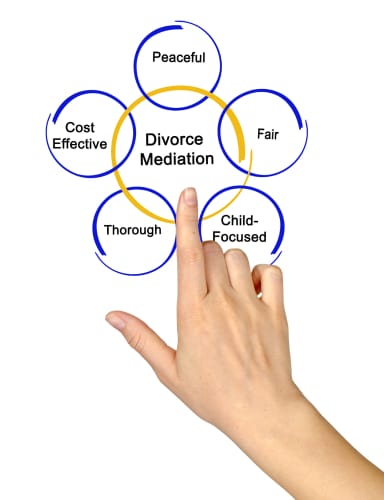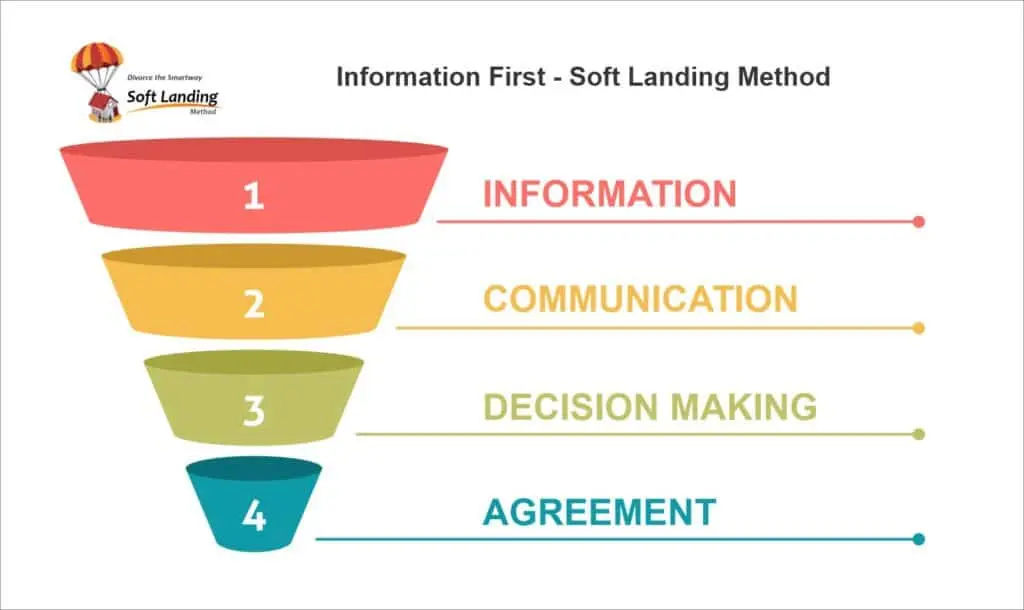Understanding the Cost of Mediation in Ontario?

What are the steps of mediation?

Information Exchange Stage
Communication Stage:
Decision-Making Stage
Agreement Stage


No, you do not need a lawyer for divorce mediation, but having one can be beneficial. They can provide independent legal advice and help you understand your rights and obligations under family law.
You should bring documents like tax returns, pay stubs, bank account statements, retirement account details, property deeds, and a list of marital assets and debts. A comprehensive checklist item is crucial for an effective mediation session.
Financial mediation costs can vary based on the mediator’s fees and the financial complexities involved. Before seeking legal advice, exploring financial mediation as a cost-effective alternative is beneficial.
Yes, some mediators offer a flat fee for divorce mediation, while others charge hourly. At DTSW we have a hybrid schedule that includes both hourly and flat or fixed fees. Before legal actions, consider the benefits of a flat fee mediation by consulting with a certified divorce financial analyst.
The average cost of divorce mediation can vary based on the mediator’s fees and the duration of the mediation process. Before approaching a lawyer, consider the potential savings of mediation with a certified divorce financial analyst.
Typically, both parties share the costs of divorce mediation. However, the specifics can vary based on the agreement between the parties. Before seeking legal advice, exploring mediation as a cost-effective alternative is beneficial.
The cost of a mediator in a divorce varies based on several factors. At DTSW, our mediator hourly rates range between $195 to $250 per hour. Before retaining a lawyer, it’s advisable to seek settlement assistance from a divorce mediator or a certified divorce financial analyst to understand the potential costs and benefits.
Ken Maynard CDFA, Acc.FM
I assist intelligent and successful couples in crafting rapid, custom separation agreements that pave the way for a smooth transition towards a secure future. This efficient process is achieved in about four meetings, effectively sidestepping the excessive conflicts, confusion, and costs commonly linked to legal proceedings. Clients have the flexibility to collaborate with me either via video conference or in-person through a DTSW associate at any of our six Greater Toronto mediation centers, located in Aurora, Barrie, North York, Vaughan, Mississauga, and Scarborough.
Have a few questions - Tap here to Schedule a Get Acquainted Call


















































